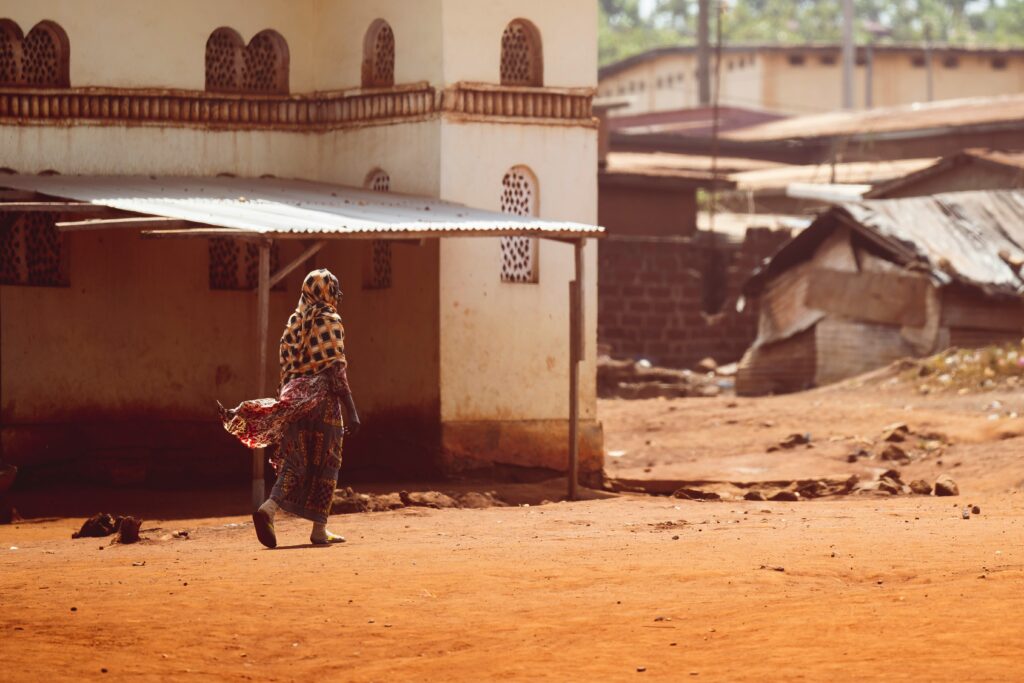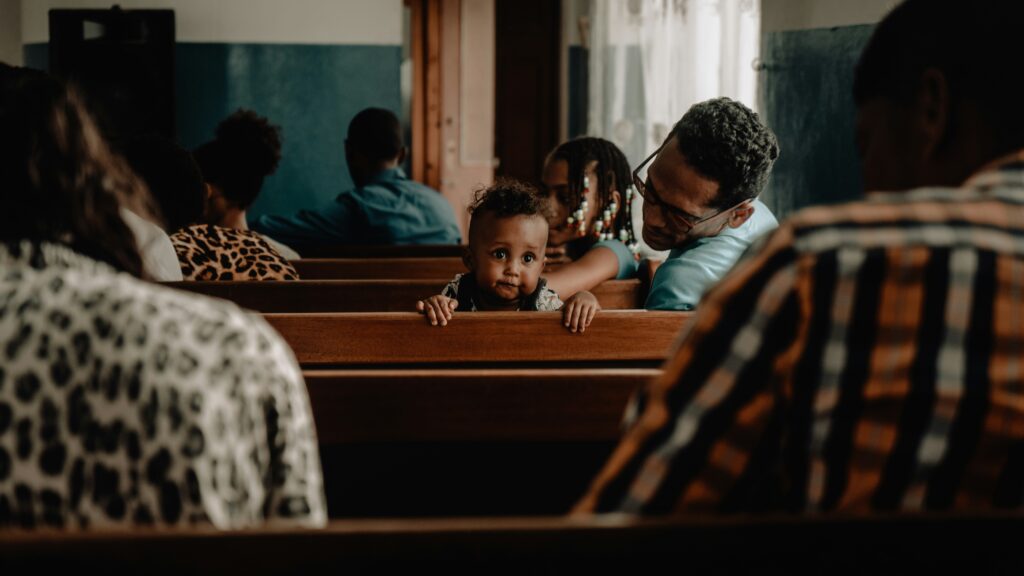
Religious extremism in Africa
Opposing bigotry and religious extremism in Africa requires cooperation between rationally minded people of all faiths and none, overcoming simplistic narratives, argues Caleb Onah.
As the West tries ever harder to leave religion behind, it may be difficult for many people in its secular lands to appreciate just how religious Africa is and how positive a force faith is in our continent.
But the downside of such a deep religiosity is that it can lead to the persecution of those who hold other creeds. A deep attachment to certain beliefs can provoke an extreme rejection of others and, more worryingly, of those who profess them.
This is why rationally minded Africans have to stand together to oppose religious extremism and persecution in all its forms.
Sub-Saharan Africa, though having relatively low discrimination levels, grapples with increasing religious misunderstanding, conflicts, violence and faith motivated wars. Millions suffer displacement, torture, and death due to religious bigotry and extremism, affecting minorities like Muslims, Christians, Baháʼí Faith practitioners, Ahmadiyya Muslims, and Rastafarians. And though the many forms of traditional African religions stand out as the most tolerant among Africa’s major religious legacies and the least persecuted, they also suffer persecution.
If the larger organised religions want to prove their legitimacy over these religions, they must do so by persuasion and rational discourse, not imposition. Alas, this is not always the case.
A report by the United States Commission on International Religious Freedom (USCIRF) warns about the discrimination facing African indigenous spirituality and religion across the continent and emphasises the need for democratic, tolerant, and reformative efforts by governments, political leaders, and religious figures. But thus far little has been done.
The report, published in April, sheds light on the neglect of African traditional and indigenous religions within the discourse on freedom of religion in the continent. Despite a centuries-old tradition, these faiths have faced challenges such as violence, legal restrictions, desecration of sacred sites, and discrimination.

Though, Christianity and Islam are the dominant religions in Africa, there is a resurgence of traditional practices. Unfortunately, practitioners of these traditional religions often experience violations of their religious freedom, with instances of attacks by Christian and Muslim extremists. For instance, in 2020, Islamic State fighters beheaded over a dozen men and young boys during an African indigenous spirituality ceremony in Mozambique.
In 2022 it was reported by multiple sources that Boko Haram militants in Nigeria brutally killed 20 women, accusing them of witchcraft. This was yet another example of religious bigotry, also because not all of the victims were necessarily practitioners of African indigenous religions.
There have been instances where false allegations of witchcraft were used to persecute or discriminate against followers of African indigenous spirituality. Sacred lands and shrines have been violated, and those practising African indigenous spirituality have faced challenges related to burial practices and cemeteries.
The emergence of new religious movements (NRMs) in various African countries has been met with suspicion and fear in other parts of the world. These movements are often portrayed as ‘unorthodox’ or ‘dangerous’ contributing to negative stereotypes about African religiosity. It is important to approach such movements with critical thinking and avoid generalisations, while recognising the need for interfaith dialogue and understanding.
But Islam and particularly Christianity also suffer persecution. The BBC recently reported that Islamist insurgency in West Africa has led to a rise in persecution of Muslims in the region as groups like Islamic State and al-Qaeda fight for ascendency and for the triumph of their particular understanding of Islam.
The imposition of one form of Islam by a militarised group on other Muslims is an often forgotten form of religious persecution.
And the violent actions by these groups is leading to a widespread hatred of Muslims in general. The United Nation (UN) has reported that anti-Muslim hatred has reached ‘epidemic proportions’ and urged action by States.
Christians are suffering greatly too. According to a report by the International Society for Civil Liberties and Rule of Law (Intersociety), over the past 14 years at least 52,250 Nigerian Christians have been brutally murdered at the hands of Islamist militants. The report also states that over the same period, 18,000 Christian churches and 2,200 Christian schools were set ablaze. The situation in Nigeria has been described as one of the most dangerous places to live for Christians in Africa.

Open Doors, an interdenominational foundation that supports persecuted Christians worldwide, released a report stating that the persecution of Christians is at its highest point in three decades. According to the report, some of the worst locations for Christians were North Korea, Somalia, Yemen, Eritrea, Libya, Nigeria, Pakistan, Iran, Sudan, and India.
Conflicts between Christians and Muslims in countries like Nigeria and Ethiopia highlight the complex interplay of these historical grievances, plus the political competition and social factors which have fuelled religious tensions. These conflicts often have part of their root in local dynamics and cannot be solely attributed to external influences.
From a psychological point of view, understanding religious bigotry and extremisms between Africans and the rest of the world requires moving beyond simplistic narratives. We must acknowledge the legacy of colonialism, recognise the diversity of religious experiences within Africa, and avoid attributing all our interfaith tensions to external factors.
Engaging in critical thinking, promoting interfaith dialogue, and respecting the diversity of religious beliefs are crucial steps towards fostering mutual understanding and combating religious bigotry and extremisms.
As Martin Luther King, Jr. asserted, “Darkness cannot drive out darkness; only light can do that. Hate cannot drive out hate; only love can do that. Extremism is the enemy of progress and understanding.”
This shows that we can only promote religious tolerance and respect for diversity through intentional and deliberate education and interfaith dialogue.
Religious leaders – priests, imams and other actors – can play a particularly influential role in this matter, given their spiritual leadership and influence over their communities and the broader society.
Governments should also take steps to protect those in danger of religious persecution and combat religious discrimination through legislation and initiatives. As Pope Francis said, “religious fundamentalism betrays the very essence of faith. God is love, and true religion leads us to build bridges, not walls.”
Therefore, it is crucial to address the root causes of religious intolerance and promote social cohesion and inclusion. Ultimately, eradicating religious bigotry around the world requires a collective effort from all members of society, regardless of our religious beliefs or backgrounds.
Like what you’ve read? Consider supporting the work of Adamah by making a donation and help us keep exploring life’s big (and not so big) issues!
Caleb Onah
Caleb Onah is a lifelong book fanatic, writer, and researcher, and has written for a variety of publications. He studied Psychology at the Benue State University, Nigeria. As a disciplined, committed, self-motivated, behavioural scientist and trained mental health counsellor, he helps quite a number of individuals and groups overcome their mental health challenges and discover a perspective about themselves. He divides his time between writing, and providing psychosocial support.

